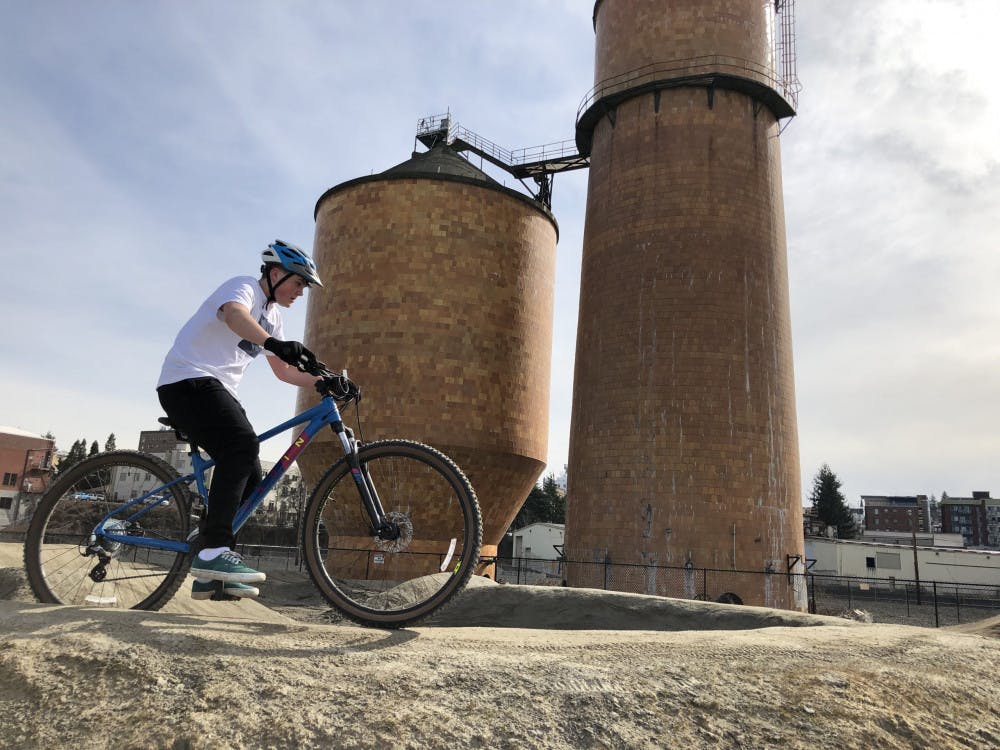Column by James Ellis
Last year, I began planning a trip to Shanghai for spring break. It would have been my last opportunity to visit a friend before her graduation, and she invited me to stay at her apartment so I could save money for food and shopping.
Around mid-January, I realized the trip wasn’t going to happen when her school started delaying classes. When they ultimately moved online, she returned to the States, and that was the end of it.
I had accepted that I wasn’t going to visit Shanghai this year, but this past week, I started questioning whether I’ll have opportunities to leave my house at all.
But maybe now is a good time to avoid extraneous physical interaction. The World Health Organization has classified COVID-19 as a global pandemic, countries and organizations are suspending operations and Whatcom County has declared a public health emergency.
I enjoy my solitude, but that is not the case for everyone. Cooperation and socialization were early survival mechanisms that helped fuel human evolution, and some scientists theorize we are genetically wired for social systems.
Theresa Pauly, a Ph.D student at the University of British Columbia, studied solitude for her master’s degree. Pauly still enjoys her alone time, but she recognizes the social pressure of going out and the negative connotations of declining invitations.
Pauly distinguished solitude from loneliness for her studies, defining solitude as a physical state of social isolation and loneliness as a mental state, where our negative feelings tend to dwell.
“Loneliness is really a subjective assessment of whether my social relationships are up to par with how I would like them to be,” she said. “One person may have 10 friends, and they’re completely happy with that, and another person may have 10 friends and feel bad.”
To avoid feeling lonely, Pauly observed from her studies that people could enjoy their solitude by framing their isolation as a conscious decision, buffered by faith in their ability to maintain their social connections. She said finding ways to focus on the moment can prevent people from ruminating on anxiety or other negative emotions.
That being said, people should also take care in engaging in the myriad media-based activities we use to pass time. We often multitask when we consume music or podcasts or TV. According to a study from the Journal of the Association for Consumer Research, even the presence of a smartphone disrupts humans’ ability to pay attention and that overstimulation prevents our brains from effectively reflecting and reducing stress.
If you want to enjoy activities, leave your phone in another room and devote your time to a single task. Alternately, there’s nothing wrong with taking a moment to do nothing.
At this point in my life, reading has become a scavenger hunt I perform to finish my homework. I have to remind myself that I once enjoyed cracking open a new book, and can learn to feel that way again. Aside from the cognitive benefits of reading, it’s one of the most cost-effective and accessible activities available. (Libby, a free app, lends digital audiobooks and ebooks at no cost for library card holders.)
Depending on your budget, you can also pick up a hobby. Cooking or baking, yoga, puzzles or even a skill adjacent to your major will pass the time and feel enriching.
When cabin fever sets in, taking to nature is a welcome option in the Pacific Northwest. Stephen Magnuson, program coordinator at the AS Outdoor Center, said he feels rejuvenated when he hikes alone. He likes to use the isolation, surrounded by greenery, as an opportunity for peaceful reflection.
“Definitely take the opportunity to get out,” Magnuson said. “Spending time in nature can be good, both mentally and physically, especially in times like this.”
Magnuson implored people to plan thoroughly for solo hikes and communicate with someone about their plans; make sure someone knows where you’ll go and when you plan to return. He said to bring the “10 essentials” — food, water, first aid, etc. — to make sure you can self-sustain.
At the very least, Magnuson recommends checking out local parks and finding other ways to get some fresh air.
“When people are struggling with what to do,” Magnuson said, “just getting outside and spending some time in green spaces can be really supportive for your mental health and overall well-being.”
How people apply this advice and whether they do so outside of our current predicament is their decision to make, according to Marty Nemko, a career coach with a Ph.D in educational psychology from University of California at Berkeley.
Nemko advocates for people to make decisions based on what they know of themselves, not social pressure. He said different people will derive benefits from being alone versus socializing, and they should consider their needs as opposed to adhering to the path of least resistance.
“I don’t like black and white,” Nemko said. “One size does not fit all.”
Follow The Western Front on Facebook and Twitter for ongoing updates.
If you're interested in contributing to the Front's reporting during this crisis, you are invited to participate in our open newsroom project, where experienced reporters and editors will work alongside the community to gather and verify information that leads Whatcom County toward shared solutions. To participate, please fill out this form.






